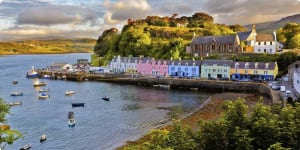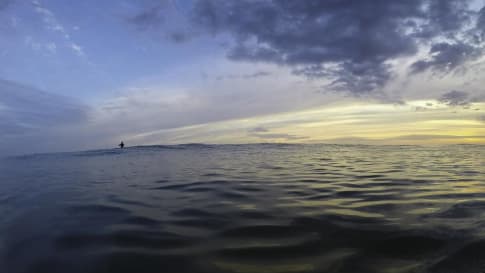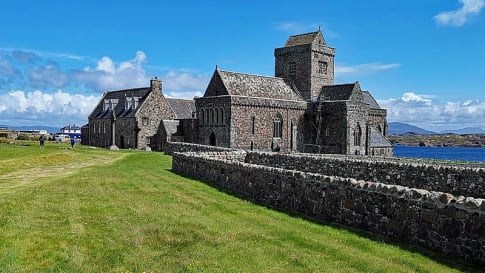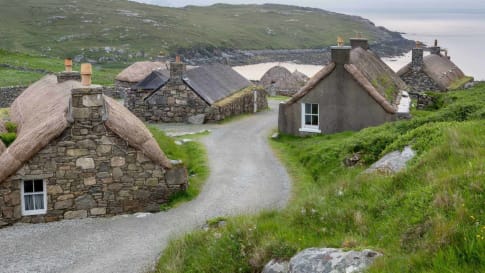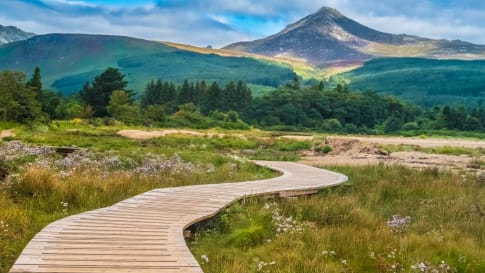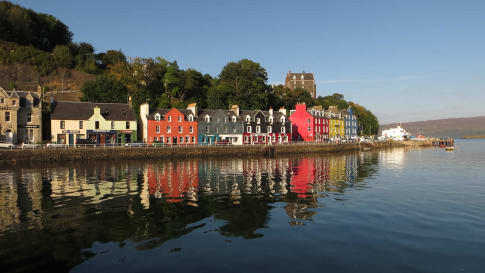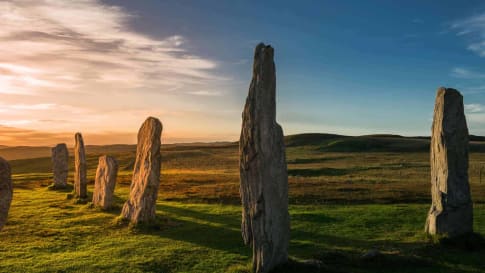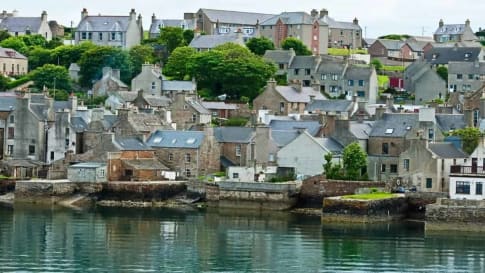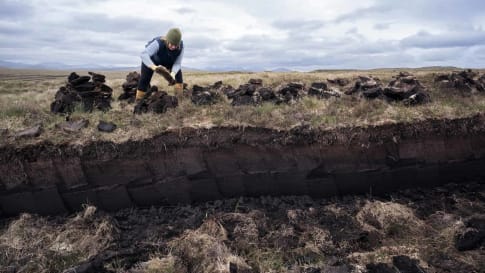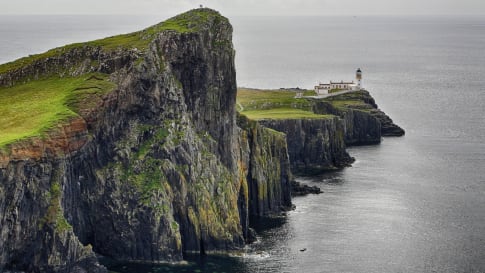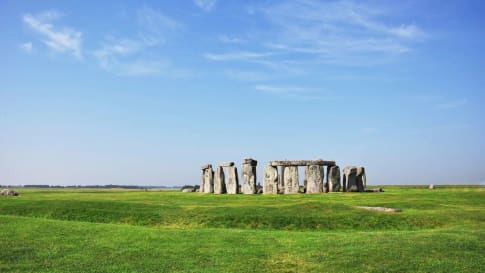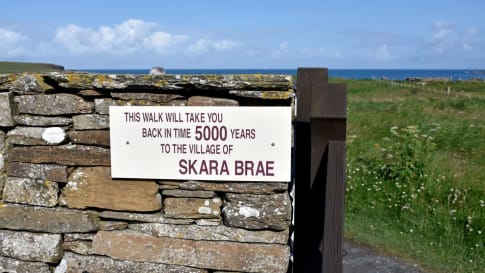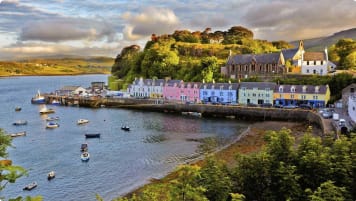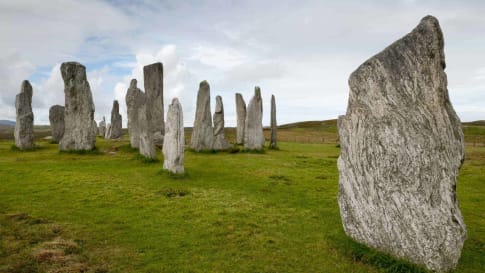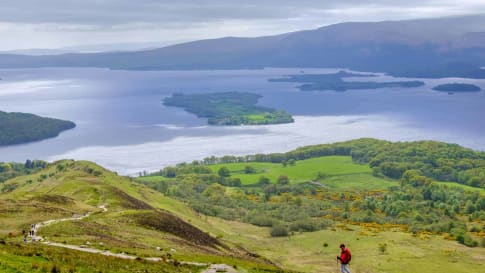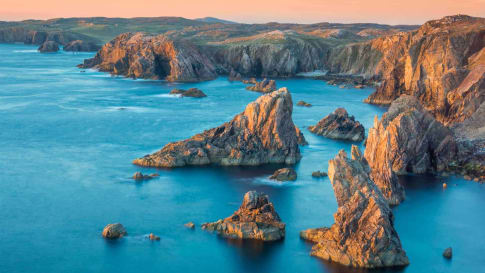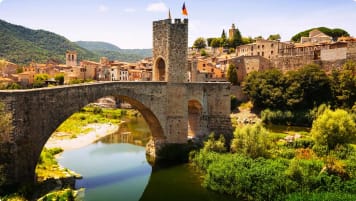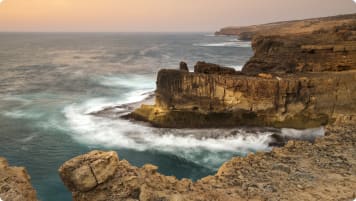Scottish Islands and Shetland small group tours for seniors
An escorted small group tour for couples and solo travellers of the Scottish isles including the isle of Skye draws on local guides to share their knowledge of the destinations in this unique part of Scotland. UNESCO world heritage site are visited as breathtaking scenery and authentic experiences are shared in a group of like minded people on this guided tour of remote Scotland.
From A$17,525AUD

Highlights
- 1. Experience Scotland in miniature on the Isle of Arran.
- 2. Explore the outer Hebridean Islands of Lewis and Harris with their fantastic geological formations, standing stones, and Broch.
- 3. See Iona, the tiny island from which St. Columba took Celtic Christianity to the British Isles.
- 4. Visit the western Isles of the Hebrides where our ferry takes us to the Isle of Skye.

Departure Dates
| Departure Date | Price |
|---|---|
| 25 May 2025 Ends 13 June 2025 • 20 days A$17,525 Twin A$20,550 Single Guaranteed | Selected |
| 13 July 2025 Ends 01 August 2025 • 20 days A$17,525 Twin A$20,550 Single Available | |
| 07 September 2025 Ends 26 September 2025 • 20 days A$17,525 Twin A$20,550 Single Guaranteed | |
| 24 May 2026 Ends 12 June 2026 • 20 days A$18,750 Twin A$21,895 Single Available | |
| 12 July 2026 Ends 31 July 2026 • 20 days A$18,750 Twin A$21,895 Single Available | |
| 13 September 2026 Ends 02 October 2026 • 20 days A$18,750 Twin A$21,895 Single Guaranteed |
Scottish Islands and Shetland small group tours
Odyssey offers easy, convenient, and relaxed escorted small group tours across Scotland and includes the Scottish isles. We explore the Scottish isles fairy-tale natural beauty, its ancient heritage, its World Heritage Sites, and world famous islands, all with some truly spectacular scenery along the way. This and more is all waiting to be explored on one of Odyssey’s small group tours of Scotland, designed for the senior traveller, and led by experienced, and enthusiastic like minded people.
These Scottish island tours are small group tours that include a tour of the Outer Hebrides, Orkney small group tours and the tours of Shetland islands that are specifically tailored for mature aged and senior travellers interested in exploring beyond the Scottish mainland the historic sites on the Orkney archipelago and the Outer Hebrides in particular.
Join Odyssey Traveller on one of our Scottish island tours including the small group tours Shetland Islands. A guided tour that is a journey through each Scottish isle (islands) including the opportunity to visit the Shetland isles, for 20 days with 3 departures each year. This unique travel experience explores the nation's living history visiting not just the popular Scottish isle(s) but also the smaller islands (such as Mousa Island) for their uniqueness and stunning scenery using the Calmac ferry network to operate this island tour. While the islands' residents mostly lead modern lives, there is still evidence of a much older way of life. The Scottish Islands are ancient sites and among the world's great repositories of archaeological sites and treasures, such as the prehistoric Callanish standing stones and stone circle on Lewis and Harris, as well as isolated monuments and unforgettable naturally spectacular scenery and quaint villages. This program also includes guided tours of Shetland and Orkney Islands. On the Orkneys the escorted small group tour spends time exploring and learning about the neolithic orkney around Skara Brae. Our guided tours also include a visit to a whisky distillery on the Isle of Arran.
Odyssey Traveller's escorted small group tours are specifically tailored for senior and mature-aged travellers for couples and solo travellers from all around the world.
A Brief History of Scotland
Modern-day Scotland had its roots in the Celtic settlements during the Iron Age, and was formed by the subsequent waves of invasions and established kingdoms.
The Celts arrived in Scotland during the Iron Age (circa 500 BC). Our knowledge of this group of tribes come to us filtered through Roman eyes, as it was the Romans who first chronicled their lifestyles and fighting prowess.
The Romans invaded Britain in 43 AD, but they were unsuccessful in fighting the Celtic tribes in the north. Julius Agricola, a Roman governor, marched into what is now Scotland around 80 AD and spent four years trying to subdue the tribes. Emperor Hadrian decided fighting the Celts was futile and pulled back, building Hadrian’s Wall around 122 AD in England to mark the northern limit of Roman Britain.
The Romans abandoned Britain around 410 AD, and the region was settled by other invading parties, such as the Vikings and the Germanic Anglo-Saxons. The Vikings and the establishment of a Viking settlement would have a long and lasting presence in certain parts of Scotland: Norse earls would rule the Hebrides until 1266, and the islands of Shetland and Orkney would remain with the Vikings until it was annexed to Scotland as part of a dowry in 1472. (Read more in our article on the Shetland Islands.)
Before the Vikings, Scotland was settled by the Picts, which the Romans referred to as the Picti, or “painted ones” perhaps due to their habit of painting dye on their bodies (though this claim is contested by modern historians). They were said to have migrated from Scythia (Scandinavia) before settling and forming powerful kingdoms in what is now northern Scotland.
The Viking invasions may have weakened the Picts’ forces. While the Picts were able to thwart the Romans for many centuries, in 843 AD, Kenneth MacAlpin, crowned King Kenneth I of the Kingdom of Dál Riada (or Dalriada) crushed their resistance and also became king of the Picts.
Dalriada was composed of parts of northeastern Ireland and western Scotland. The union of Dalriada and Pictish lands in northern Scotland formed the Kingdom of Alba, which became the starting point of the Scots’ expansion of their territory.
The Scottish Highland and the Lowland regions diverged culturally following the Battle of Hastings that marked Norman ascendancy in England. The Anglo-Norman feudal system was introduced to the Lowlands, but the Dalriadan clan system persisted in the Scottish Highland. Gaelic would be spoken in the Highlands until the 19th century, and to this day Highland English displays strong influence of Gaelic in its grammar and pronunciation.
Tour of Scotland and Shetland Itinerary
This Scottish Islands and tours of Shetland islands program focuses particularly on the culture and heritage of the Scottish islanders. Because Odyssey ensures that these are small group tours of upto 16 people, we stay in comfortable family-run hotels and cruise to some of the more isolated Scottish isles. As we visit each island, we take short history tours and take in some of the most breathtaking scenery in the British Isles on the west coast that are the islands around Scotland. Our escorted tour of the Scottish Islands also includes a stop at the ancient Island of Iona. This is the point from which St. Columba took Celtic Christianity to the British Isles. Our trip also includes time on the outer Hebrides islands of Lewis and Harris. Here, our tour with a local guide features encounters with fantastic geological formations and archaeological collections of Scottish stone circles. We also make sure to visit the Isle of Skye, including the striking mountains of the Storr and the charming village of Portree.
Guided by a local tour guide, their passion for these unique islands of Scotland shines through. Whilst on this small group tour, we learn about land management today, the relationship of peat and whisky, the settlement of the islands as part of the greater exploration of the North Atlantic and the burial mounds and the unique wildlife of the Scottish Islands including puffins nesting along the cliffs and shetland ponies and maybe otters. With these trips we gain local insights on the relationship with the mainland and learn about the invasions repelled from both the North and the South. And of course the contemporary lives of this diverse collection of people who now inhabit the Islands around Scotland. It is, as we will discover, the local people today who are keeping the history and lifestyle of our destinations alive.
About our small group tours Scottish Isles
This 20-day Scottish Island tour for mature travellers starts in Glasgow on the River Clyde. The tour continues to seven terrific islands whilst passing many more as we circumnavigate the striking landscapes of the Scottish coastline from west to east.
Odyssey's tour of the Scottish Islands visits:
- The island of Arran
- Isle of Mull
- Isle of Skye
- Harris & Lewis
- Orkney Islands
- Shetland Islands
Finally, we end our tour in Edinburgh. While we only include one night in an Edinburgh hotel, you can prolong your trip to take in the major sights: the Royal Mile, Palace of Holyroodhouse, and of course, make time for another whisky distillery tour!
The Scottish Isles small group educational program is terrific for couples or solo travellers.
Typically Odyssey Traveller offers 3 departures each year of this program to the Scottish islands, in order to ensure we can keep the groups at a manageable size and offer you as many options as possible.
This tour link to a small group tour of the Faroe Islands.
For more details, click the ‘Top 5’ or ‘Itinerary’ buttons above! If you’re keen to experience this tour, please call or send an email. Or, to book, simply fill in the form on the right hand side of this page.
You can also start by reading our our country spotlight on Scotland.
Articles about the Scottish Isles published by Odyssey Traveller.
The following list of articles published by odyssey Traveller for mature aged and senior travellers to maximise their knowledge and enjoyment of Scotland when visiting:
- The Scottish Isles
- Shetland Islands Discovered
- Questions about the Outer Hebrides
- How the Atlantic Ocean shaped early life in Europe
- Skara Brae
For all the articles Odyssey Traveller has published for mature aged and senior travellers, click through on this link.
External articles to assist you on your visit to Scotland
- A Long Love Affair With the Scottish Isles, in Pictures
- The hidden history of Scotland’s Small Isles
- 10 things you (probably) didn’t know about Scottish history
The rest of our Scotland-related articles can be found here.
Tour Notes
- CalmaFerry routes and schedules are subject to change so, although we will include all elements in the tour, the order/nights may change
- Many of the hotels used on this tour are small or in heritage buildings. Lifts and/or porterage may not be available.
- Maximum of 16 participants.
Published May 2016. Latest update Sept 2023.
Gallery
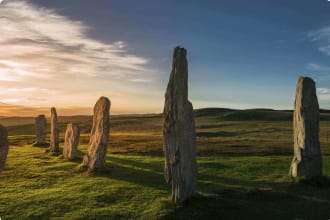
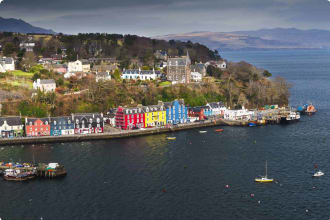
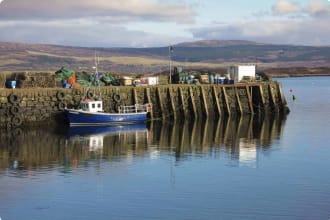
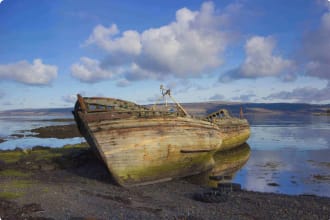
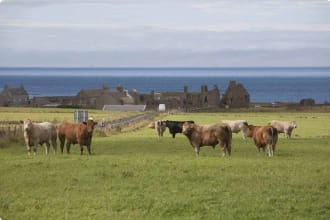
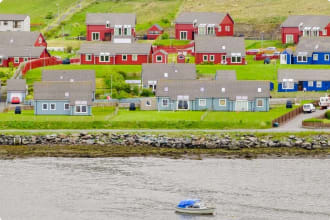

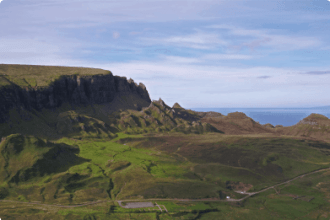
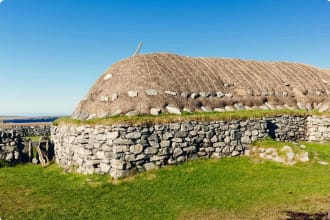
Itinerary
20 days
Day 1: Glasgow
Accommodation: 1 night at Moxy Glasgow or similar.
After arriving into Glasgow, make your own arrangements for transfer to the hotel. We meet the tour leader at 1:30pm at the hotel lobby for a brief introduction followed by a walking tour of Glasgow.
Later in the afternoon we have a Welcome Meeting with an overview of our program before dinner at a local restaurant.
Day 2-3: Glasgow - Arran
Accommodation: 2 nights at the Auchrannie Hotel or similar.
In the morning we will have a guided tour of Glasgow, visiting the main sights of the city including the River Clyde shipbuilding area. From Ayrshire, we cross the Firth of Clyde to the Island of Arran. With its rugged granite mountain peaks in the north and green rolling hills and pretty villages in the south, it is believed that Arran has been populated since the end of the last Ice Age. The island boasts a number of Neolithic burial tombs and the Bronze Age stone circle. The island was purchased from the Vikings after the Battle of Largs and it is said that Robert the Bruce received the signal to re-invade Scotland while his followers were harassing the English garrison at Brodick Castle. We will have a chance to see this 13th century castle. The island is now best known for outdoor activities and its distillery producing whisky, and local producers of cheese, and oatcakes.
Day 4: Oban
Accommodation: 1 night at Muthu Dalmally Hotel or similar.
From Arran we take a ferry to the strangely-shaped Scottish peninsula of Kintyre, traversing magnificent scenery and visiting fine gardens such as Arduaine, noted for its spectacular displays of rhododendrons and azaleas.
Day 5-6: Mull
Accommodation: 2 nights at Western Isles Hotel or similar.
We will explore the outstanding scenery of Mull, one of the larger of the Inner Hebridean islands. Mull offers rough moorlands, the rocky peak of Ben More, and a stunning coastline. The 13th century Duart Castle, home of the chief of the Maclean clan, is our next stop. We will visit the pretty fishing village of Tobermory and see the brightly coloured buildings lining the harbour.
We will see the burial place of Lachlan Macquarie, on of the first governors of Australia who was a native of Mull. We will make our pilgrimage to the tranquil islet of Iona, which is the birthplace of Celtic Christianity in Britain. A restored abbey stands on the site where Irish Saint Columba began his crusade in 563 and where 48 Scottish kings are said to be buried. Though not covered within the tour cost, there may also be time, – weather and ferry timing permitting – to make the trip to Fingal’s cave on the Isle of Staffa, one of Scotland’s natural wonders and inspiration for Mendelssohn’s “Hebrides Overture.” Note: the landing on Staffa can be very hazardous, due to the slippery basalt stones and tide levels.
Day 7-8: Isle of Skye
Accommodation: 2 nights at The Ardvasar or similar.
The Isle of Skye, renowned for its rugged and dramatic scenery, has enjoyed a turbulent geological history and is the largest island of the Inner Hebrides. Its abandoned crofts pay testament to the brutal Highland Clearances which followed the battle of Culloden and it is historically significant as the Island that provided refuge to Bonnie Prince Charlie after the battle.
We will explore from the rugged volcanic plateau of the north to the peaks of the Cuillins. We are never far from the sea and will experience numerous sea-lochs, limestone grasslands dotted with sheep and cattle, and crofts abandoned during the Highland Clearances, when landowners demanded rent instead of military service from their tenants. Thousands of tenants were evicted and emigrated when they were unable to afford the impost. We learn about clan heritage and see the castle at Dunvegan. We will also visit Armadale Castle, which houses the Clan Donald Visitors’ Centre, and experience the local whisky.
Day 9-11: Lewis & Harris
Accommodation: 2 nights at Royal Hotel and 1 night at Arch Inn or similar.
We explore the islands of Lewis and Harris, which are separated by a narrow isthmus, with the ancient Standing Stones of Callanish and the ruins of Carloway Broch providing testament to long habitation here. We also visit the bustling harbour of Stornoway, view the rolling peat moors of Lewis, and the mountains of Harris. For centuries, the peat bogs of the eastern shores have provided islanders with fuel and man has been here for 6,000 years living off the sea and the thin turf. However, abandoned monuments attest to the difficulties faced in commercializing the islanders’ traditional skills such as the tough Harris Tweed, known throughout the world. Gaelic, part of an enduring culture, is still spoken on the islands. We learn more about the recent past at Arnol’s Black House Museum, a showcase of crofting life, and there is chance to experience the local producers of cheese, smoked fish, and tweed.
Day 12: Thurso
Accommodation: 1 night at The Portland Lybster or similar.
We board our early morning ferry for our return to mainland Scotland where we visit Dunnett Head, the most northerly point on mainland Britain. On a clear day it commands extensive views which include the Orkney Islands to the north, and the length of the north coast of Scotland from Duncansby Head to the east, and to Cape Wrath, in the west. We will drive via Kylesku to a small, remote fishing village, and visit Durness, where we explore Dunnet Head.
Day 13-14: Orkney
Accommodation: 2 nights at Orkney Hotel or similar.
On Orkney small group tours we will experience some of the most beautiful scenery in the British isles. On the Orkney mainland we learn on our Orkney tour about some of the prehistoric, Celtic, and Viking influences on the island peoples, visit some of the picturesque small towns and villages, and catch a glimpse of some of the island’s seals, otters, and colonies of sea birds while we search for historical treasures in its great collection of ancient sites. After lunch the Orkney tour visits the Standing Stones of Stenness, the Ring of Brodga, and the prehistoric village of Skara Brae. We will also learn about the wartime history of the island as we view the Churchill Barriers and Italian Chapel, the St Magnus Cathedral.
Both Orkney and Shetland have close links to the Nordic countries through language, lifestyle, and history, despite the fact that the Orkney Islands are within 10 kilometres of mainland Scotland. The Orkney isles differs from the Shetland isle in that it has flat and undulating islands with rich soil, which makes the grass green and nurtures summer crops of grain. Shetlanders are fishermen with farms while Orcadians are farmers with boats. Orkney is, however, still known for its dramatic coastal scenery, abundant marine bird life, and islands which contain the densest concentration of prehistoric and ancient sites in Britain, testifying to their long history of settlement. Eighteen of the 67 Orkney island are inhabited.
Day 15: Overnight Ferry
Accommodation: 1 night on Northlink Ferry.
On the second day on Orkney small group tours we will have a morning guided tour of Kirkwall, and a visit to Bishop’s and Early’s Palaces, before leaving you the afternoon to further explore Orkney island. We will then have dinner at a local restaurant before boarding an overnight ferry to travel between Orkney and Shetland. Northlink Ferrries have all the attributes of a mini cruise liner with en-suite cabins, restaurant, bar, and lounges. A typical local breakfast is provided during the cruise.
Day 16-17: Shetland
Accommodation: 2 nights at Scalloway Hotel or similar.
We will view the wild, untamed scenery of Shetland, where we may catch a glimpse of some of the islands’ tiny ponies, colonies of sea birds, and other wildlife. We trace the ancient Celtic and Viking influences on the Shetland island peoples and their language, as we visit some of the remote villages in our search for historical treasures. We will also visit the Shetland island museum in Lerwick, the harbour of Scalloway, the Sunburgh Head, and Jarlshof, where the museum explains the sprawling sea-front ruins spanning 3,000 years. We take a short ferry to Mousa Island, and enjoy a nature walk and also visit Mousa Broch, the best preserved Iron Age tower in existence, where it is still possible to climb the staircase to marvel at the commanding view and workmanship of this 2000 year-old building.
The Shetlands are just over 300 kilometres from the Norwegian coast and were under Norse rule until 1469. About 14 of the hundred or so islands in the Shetland island group are occupied and these cliff-edged islands now form the northernmost part of Scotland. Shetlanders have a distinctive dialect derived from their long connection with Norway and nowhere on the islands is more than 8 kilometres from the sea, so that fishing and salmon farming still provide a major contribution to the economy. However, North Sea Oil has been the major source of recent revenue. Shetland too boasts some of Britain’s most stunning coastal scenery, awesome colonies of sea birds, abundant marine life, and a rich pre-history
Day 19: Edinburgh
Accommodation: 1 night at Leonardo Royal, Edinburgh Haymarket or similar.
The city of Edinburgh, the capital of modern-day Scotland, is of great political, cultural, and historical interest. Located near the Firth of Forth, in the Scottish Lowlands, Edinburgh is a city of 2 halves. The old part, with its impressive castle and the Royal Mile stretching down to Holyrood Palace, contrasts with the more recent section of garden squares and elegant Georgian architecture. Princes Street is one of its best-known thoroughfares. Edinburgh is a sophisticated city with a long and rich history, gothic monuments, a royal palace, challenging museums, interesting art galleries, and many churches.
Day 20: Edinburgh
This tour concludes in Edinburgh. If you wish to extend your stay, please contact your Educational Travel Adviser.
Tour Notes
- Ferry routes and schedules are subject to change so, although we will include all elements in the tour, the order/nights may change
- Many of the hotels used on this tour are small or in heritage buildings. Lifts and/or porterage may not be available.
- Maximum of 16 participants.
Includes / Excludes
What’s included in our Tour
- 17 nights of hotel accommodation.
- 2 nights of cabin accommodation on board a ferry (single clients may need to share depending on availability).
- 19 breakfasts and 11 dinners.
- All entry fees and services of local expert driver/guide.
- Cruises, ferry crossings, field trips, and excursions as indicated.
- Touring by comfortable and modern mini-coach.
- Services of a Tour Leader for the duration of tour.
- Gratuities and necessary tips.
- Detailed preparatory information.
What’s not included in our Tour
- Return airfare and departure taxes.
- Comprehensive travel insurance.
- Items of a personal nature, such as telephone calls and laundry.
- Porterage.
- Meals not specified in the itinerary.
Participants must be able to carry their own luggage, climb and descend stairs, be in good health, mobile and able to participate in 3-5 hours of physical activity per day, the equivalent of walking / hiking up to 8 kilometers per day on uneven ground.
Book now
Make it a private tour
Easing your journey
Crossing international borders with restrictions
The list of requirements to travel internationally has changed and will continue to change for several years. Odyssey is here to assist you in managing your way through these requirements:
For more information see our Crossing international borders with restrictions page.
Book With Confidence
If less than 30 days before your tour starts you are unable to travel as a result of Government travel restrictions, Odyssey Traveller will assist you with a date change, provide you with a credit or process a refund for your booking less any non-recoverable costs.
See Terms and conditions for details.
Peace of Mind Travel
The safety of our travellers, tour leader, local guide and support staff has always been our top priority and with the new guidelines for public health and safety for keeping safe for destinations around the world, we’ve developed our plan to give you peace of mind when travelling with us.
See Peace of Mind Travel for details.
Reviews
The organisational requirements eg hotel accommodation, tour bus and driver, local guides were of a high standard. The size of bus chosen was great for the number of passenger and for navigating the narrow “country roads”. On the whole the guides were knowledgeable, professional and knew their particular field of expertise.The Odyssey leader was definitely a “professional” in all fields - went out of his way to ensure that all participants thoroughly enjoyed this particular Scottish odyssey!! Also endeavoured to cater for everyone’s particular interests eg weaving, “standing stones” and botanical gardens. A really excellent ambassador for Odyssey Traveller!! In passing, my wife was “sorely” disappointed that Jimmy Perez was not on the wharf to greet her at Lerwick Shetlands!! - one of the highlights was surprisingly the weather, had thought that in September we would experience “wet weather” most days but bar three days, it was exceedingly good. The “natives” were friendly though difficult to understand!! - scenery superb (rugged, bleak and foreboding !!). Superb organisation forethought that catered for the needs of said participants. John & Barbara R. Sep '22
Of the twelve people on our trip, nine were Austrailian, one was a British/Canadian, and my companion and I are Americans. After the initial jabs at us Americans, the group coalesced into a nice group of traveling companions. It was fun to chat with others in the group about their lives and interests. This tour company is a great find for me. Helen B. Sep '22
A great tour to experience the isles of Scotland and explore ancient and modern history. Suzanne J. May '19
I thoroughly enjoyed every aspect of my Scottish adventure - especially the people we met along the way, and the size of the group was ideal! Kathryn was a super Tour Leader - a job I had for 15 years - kept her sense of humour very well! Golly Gosh, I would love to do it again! Och Aye - the Kilts and the peatie Single Malt - the definition of Heaven methinks. Participant May '18
Staff were very helpful and provided options for travel. The tour information was detailed and informative. Participant 2018
The Scottish Isles small group tour was thoroughly enjoyable. We had fabulous weather, saw stunning scenery, and walked around sites so incredibly ancient. Learning about the history of the islands and the lives of people past and present was really fascinating. Participant 2018
Our driver and guide was exceptional; full of information about places we visited. Resourceful when we had extra time, in organising 'wee adventures'. Diverted several times to accommodate the special interests of group members.
Participant 2015
We were more than satisfied with the whole trip. Enjoyed every bit of it. If you could improve the weather it'd be nice, but even the cold, rain and wind couldn't spoil the trip.
Participant 2015
I really enjoyed this tour. I found all of our drivers/guides were friendly, organised, professional and knowledgeable. I would recommend this tour to others.
Participant 2015
“We had previously toured mainland Scotland so the attraction of this tour was the novelty of touring all the islands and the ferry connections. However it was the totally unexpected archaeology that will remain in our memories. Along with the driver and her stories!!! Truly a "Discovery Tour".
Participant Sep -15
Reading List Download PDF
The Sea Kingdoms: The History of Celtic Britain and Ireland
Alistair Moffat
The most powerful representation yet of the race which has repeatedly changed history as we know it' - The Scotsman 'Brimming with interesting facts ... instructive and wide-ranging' - Cal McCrystal, Independent on Sunday 'The best picture of the Celtic race yet written' - South Wales Echo 'Lovingly traces the remnants of a once-powerful people through language, ancient place names, farms, fortresses, harbours and, most of all, through their connection to the sea' - Irish Times Alistair Moffat's journey, from the Scottish islands and Scotland, to the English coast, Wales, Cornwall and Ireland, ignores national boundaries to reveal the rich fabric of culture and history of Celtic Britain which still survives today. This is a vividly told, dramatic and enlightening account of the oral history, legends and battles of a people whose past stretches back many hundred of years. The Sea Kingdoms is a story of great tragedies, ancient myths and spectacular beauty.
The Celtic Myths: A Guide to the Ancient Gods and Legends
Miranda Aldhouse-Green
Introduces the world of the Celts, their gods and goddesses, heroes, monsters and villains.
As well as vividly exploring the tales, the author brings her expertise in the archaeology of the Iron Age and particularly shamanism to bear on the mythical worlds she describes, with evidence as diverse as the Gundestrup Cauldron and the famous bog bodies.
Starting with a discussion of how myths are transmitted and by whom, the author continues with an account of the Irish and Welsh myths and their key actors and motifs, before moving on to consider themes such as heroes, animals, women, environment and the Otherworld. Finally, the author asks how the myths survived the Christianization of Europe and looks at the influence of monastic chroniclers on the tales, which they preserved and adapted. Includes more than 80 illustrations
The Ancient Paths: Discovering the Lost Map of Celtic Europe
Graham Robb
Graham Robb's new book will change the way you see European civilization.
Inspired by a chance discovery, Robb became fascinated with the world of the Celts: their gods, their art, and, most of all, their sophisticated knowledge of science. His investigations gradually revealed something extaordinary: a lost map, of an empire constructed with precision and beauty across vast tracts of Europe. The map had been forgotten for almost two millennia and its implications were astonishing.
Minutely researched and rich in revelations, The Ancient Paths brings to life centuries of our distant history and reinterprets pre-Roman Europe. Told with all of Robb's grace and verve, it is a dazzling, unforgettable book.
The Scottish Islands: A Comprehensive Guide to Every Scottish Island
Haswell-Smith, Hamish
Fully revised and updated and liberally illustrated with the author's own paintings, this beautiful guide will take readers to every Scottish island, whether by armchair or yacht. From the abandoned crofts of Mingulay and the standing stones of Orkney to the white beaches of Colonsay and the spectacular Cuillins of Skye, this is the first complete gazetteer to cover all of Scotland’s many hundreds of islands, including those which are uninhabited and those which are notoriously difficult to reach. Packed with information on access, anchorages, points of historical or natural interest, and things to do and see, this fascinating compendium provides indispensable information for touring, for browsing, for reference, and for all of those travelers who wish to experience some of the most beautiful and remote places in the world. No other book begins to emulate the range and depth of the information contained in The Scottish Islands. Complete with the author's own paintings, full-color illustrations, and relief maps of all the main islands, this is both an impressive work of reference and a fascinating personal view of Scotland’s distant outposts.
Standing Stones
Beth Camp
In 1842, Lord Gordon claims his new estate in Northern Scotland and plans to replace farmers and fishermen with sheep. Mac McDonnell, suspicious of Lord Gordon from the beginning, leads protests – despite the impact his actions will have on his sister and three brothers. When evictions begin, a second protest at Westness turns violent. What will Mac risk to protect his family, his sweetheart, and his livelihood?
Set in the Orkney Islands during the time of the Clearances, Standing Stones won an award from the Pacific Northwest Writers Association for historical fiction and was called “a very promising work, with appeal to a broad audience, peppered with a variety of characters the reader can identify with sympathetically or instantly distrust.”
The Hebrides: By the presenter of BBC TV's Grand Tours of the Scottish Islands
Paul Murton
Paul Murton has spent half-a lifetime exploring some of the most beautiful islands in the world - the Hebrides. He has travelled the length and breadth of the Scotland's rugged, six-thousand-mile coast line, and sailed to over eighty islands.
In this book Paul visits each of the Hebridean islands in turn, introducing their myths anc legends, history, culture and extraordinary natural beauty. In addition he also meets the people who live there and learns their story. He has met crofters, fishermen, tweed weavers, Gaelic singers, clan chiefs, artists, postmen and bus drivers - people from every walk of life who make the islands tick. This blend of the contemporary and the traditional creates a vivid account of the Hebrides and serves as unique guide to the less well known aspects of life among the islands.
Highland Hermit: Volume 1
James Curron
James McRory Smith lived for over 30 years at Strathchailleach, one of the most remote cottages in the Britain Isles. Standing in the shadow of the squat stone structure, it is hard to imagine a more isolated spot. The building sits alone in a vast tract of empty, featureless terrain to the south of Cape Wrath, in Sutherland. There is no access road, no running water, no electricity and no telephone. Yet James McRory Smith survived here, battered by the elements and devoid of human company. His story is a fascinating account of a man pitting his wits against the wilderness, enduring endless isolation and existing, for a large part, off the land. James’ lifestyle belonged to a bygone age, yet he lived it in the 20th century, turning his back on the luxuries and conveniences of the modern world. This biography provides readers with an inspiring account of a modern day hermit. It offers a rare insight into an alternative way of life, one that is far removed from the norm. At a time when people are becoming increasingly concerned about consumption and consumerism, and their impact on the environment, James McRory Smith’s story demonstrates the practicalities and challenges of the frugal, self-sufficient lifestyle many people dream of. However, this is not intended simply as a social history, is also a true-life story of adventure and survival.
Island Wife: living on the edge of the wild
Judy Fairbairns
Dream of living on a remote Scottish island? ISLAND WIFE tells the story of a woman's life. Judy, at 19, met her future husband, who whisked her off into an adventure, a marriage of over forty years, and a life on a remote Hebridean island.
Along the way she bears five children, learns how to run a rocky hill farm, a hotel, a recording studio and the first whale watching business in the UK - all the while inventively making fraying ends meet. When her children start to leave home, things fall apart and there is sadness and joy in how she puts things back together. Funny and tender, this is a book of endless horizons and a breath of fresh air.
The Furrow Behind Me: The Autobiography of a Hebridean Crofter
Angus MacLellan
Angus MacLellan was regarded throughout his own lifetime as one of Scotland's finest traditional Gaelic storytellers. Reminiscences of his life were first recorded - on tape in Gaelic - in the early years of the 1960s and later transcribed and translated by John Lorne Campbell into this English-language biography. Born in 1869 into a poverty-stricken crofting community on South Uist, Angus MacLellan spent his childhood and his youth with his family before travelling from the island to find work first in the militia and then on the farms of the mainland. His travels came to an end when he returned to assist and eventually to succeed, his parents on their croft on South Uist in 1896. Angus MacLellan's memory for detail and his gift for telling should bring to the reader a vivid picture of a harsh lifestyle encompassing two centuries of dramatic change.
The Island Nurse
Mary J MacLeod
Life on the remote island of Papavray in the 1970s was a world away from Mary J. MacLeod’s urban existence in the south of England. And this peaceful environment was just what she was looking for.
While indoor toilets were still something of a luxury, and ‘teleeffissions’ could produce terror in some of the older residents, the glory of the mountains and the sea combined with the warmth of the island people meant she had found a haven for her family.
Mary’s post as district nurse gave her a unique insight into island life, and her stories of the troubles, joys, drama and comedies endured by her patients make this a charming and humorous account of community life on a small island in a bygone era.
Bare-Arsed Banditti: The Men of the '45
Maggie Craig
They were modern men: doctors and lawyers, students and teachers, shoemakers and shopkeepers, farmers, gardeners and weavers. Children of the Age of Reason, they wrote poetry, discussed the latest ideas in philosophy and science - and rose in armed rebellion against the might of the British crown and government.
Sons of a restless nation that had unwillingly surrendered its independence a mere generation before, some were bound by age-old ties of Highland kinship and loyalty. Others rallied to the cries of 'Prosperity to Scotland' and 'No Union!'
Many faced agonising personal dilemmas before committing themselves to Bonnie Prince Charlie and the Jacobite Cause. Few had any illusions about the consequences of failure. Many met their date with destiny on Culloden Moor, players in a global conflict that shaped the world we live in today.
Combining meticulous research with entertaining and stylish delivery, Maggie Craig tells the dramatic and moving stories of the men who were willing to risk everything for their vision of a better future for themselves, their families and Scotland.
Pursuit of Princes: Volume 5 (The Jacobite Chronicles)
Julia Brannan
THE FIFTH BOOK IN THE CAPTIVATING SERIES WHICH FOLLOWS THE LIVES OF BETH AND ALEX MACGREGOR, THEIR FAMILY AND FRIENDS. The rebellion is over. Prince Charles is in hiding, the Jacobite clans are scattered to the four winds, and in Inverness the Duke of Cumberland plans a brutal retribution against the Highlanders who rose against his father. His intention; to ensure they can never rise again. Alex, knowing Beth to be dead, leads his men into a vicious war of attrition against the British Redcoats, who have destroyed everything in life he ever held dear. Only his desire for revenge keeps him alive. Meanwhile the Duke of Cumberland is hatching a plan that he is confident will reveal the true identity of Sir Anthony Peters, the man who made a fool of the king, the duke and all society, a man he wishes to capture more than anyone else alive. JOIN THE CONTINUING REBELLION OF THE MACGREGORS AND THEIR FIGHT FOR REVENGE AND SURVIVAL IN… THE JACOBITE CHRONICLES
A History of the Scottish People, 1560-1830
T.C. Smout
A beautiful new cover for one of Fontana Press’s hardiest perennials.
‘By far the most stimulating, the most instructive and the most readable account of Scotch history that I have read…this splendid work carries us from Knox to Neilson, from the hot gospel of Calvin to the hot-blast of the smelting process – and incidentally seeks to explain the change. For always, in following this lucid narrative, we see an original mind at work, questioning and explaining, as well as illustrating.’ Hugh Trevor-Roper, Sunday Times
‘This is a fine history of Scotland. It combines rich and deep scholarship with an elegant and lucid style…No one who professes an interest in Scotland can afford to miss reading it.’ Times Literary Supplement
‘This remarkable book leaves the reviewer with little to say except that all Scots, and even Englishmen, who are interested in Britain’s development, should read it. It is admirably proportioned, based on vast reading, and brings all the main topics together.’ Economist
The Scottish Enlightenment: an Anthology
Alexander Broadie
The Scottish Enlightenment is one of the great achievements of European culture. In philosophy, law, economics, politics, linguistics and the physical sciences, Scots were key players in changing the way the world was viewed. And this explosion of activity still reverberates. It was the age of David Hume, Thomas Reid and Adam Smith, of Adam Ferguson, James Hutton and Sir John Sinclair. In his authoritative introduction, Alexander Broadie emphasises not only the diversity of intellectual discussion taking place in this small country located on the outer edge of Europe, but also the European dimension of this Scottish movement.
After the general introduction, the anthology is arranged thematically - Human Nature, Ethics, Aesthetics, Religion, Economics, Social Theory and Politics, Law, Historiography, Language and Science. These sections gather together well-known and lesser-known writings of the time. Much of the material has not been reprinted since the 18th century. Those with an interest in the Scottish cultural tradition will find many things to hold their attention in this unique book.
The Other British Isles: A History of Shetland, Orkney, the Hebrides, Isle of Man, Anglesey, Scilly, Isle of Wight and the Channel Islands
David W . Moore
heir names bespeak a rich past. From the Norse Hjaltland comes the modern Shetland: islands nominally Scottish, steeped in Nordic culture, closer to the Arctic Circle than to London. Important Neolithic sites are at Skara Brae and Maes Howe in the Orkneys. Holy Iona, island center of Celtic Christianity, the Isle of Man, former seat of rule over the Irish Sea, and Anglesey and Islay, homes of medieval courts at Aberffraw and Loch Finlaggan, are just a few of the more than 6,000 islands that form the archipelago known as the British Isles. The offshore isles are home to half a million people.
Focusing on the eight islands or chains that have long supported substantial populations, this history tells the stories of Shetland, Orkney, the Hebrides, Anglesey, the Channel Islands, the Scilly Isles, and the Isles of Man and Wight, from their Neolithic settlement, to Roman, Norse and Norman occupation, to the struggle to maintain their uniqueness in today’s world.
Wild Guide Scotland: Hidden places, great adventures & the good life
Kimberley Grant
A new compendium of adventures, from the best-selling Wild Guide series (winner of travel guidebook of the year 2015). This guide to Scotland and the Scottish highlands and islands, one of Europe's fastest growing adventure holiday destinations, explores the hidden parts of its better known tourist areas, as well many more remote regions, rarely visited by tourists. Guiding you to over 800 wild swims, ancient forests, lost ruins and hidden beaches. Including inns, wild camping, local crafts, artisan whisky distilleries and wild places to stay.
